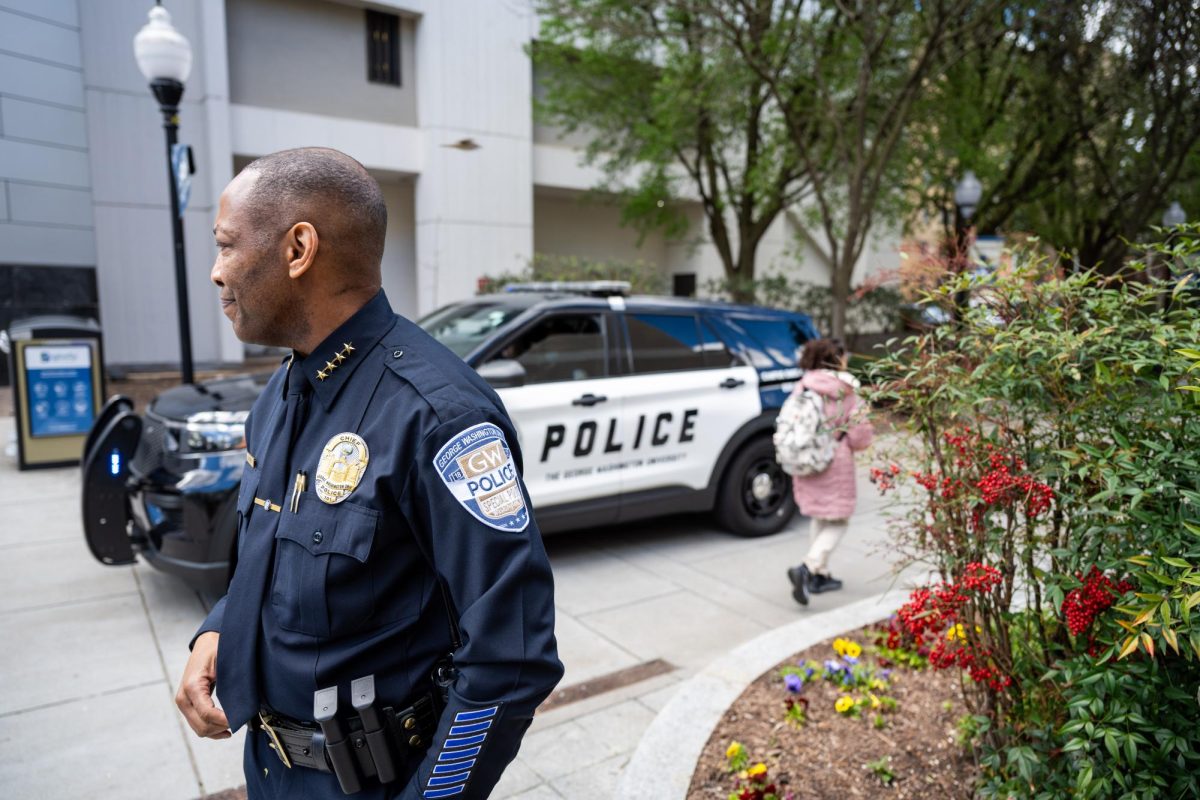The University will spend $1.2 million to install keyless, electronic locks in more than a half-dozen residence halls over the next year to help beef up security and modernize dorms.
GWorld card readers will replace standard locks in Ivory Tower, JBKO, West Hall and 1959 E St. this summer, followed by each Mount Vernon Campus hillside residence hall – Cole, Hensley and Clark halls – over the next academic year.

Students will tap their GWorld cards onto their door handles to get into their rooms, which would lock automatically – a system also used at schools like University of Virginia and Villanova University.
The efforts follow a spike in thefts in Ivory Tower, Fulbright and JBKO halls in January. The string also led to added security in those halls.
Mount Vernon Campus residence halls, however, see crime much less frequently. Out of the nearly 200 thefts and burglaries reported in the UPD Crime Log during the spring semester, only four were on the Vern. Officials have typically kept security lighter on GW’s more suburban campus.
The installations continue the University’s efforts to add electronic locks in dorms. Lafayette Hall went keyless in 2011 as part of a $9.8 million overhaul, and Munson Hall was equipped with electronic locks following a $2.8 million renovation last year.
GW plans to continue installing the electronic locks in campus buildings, including in the ‘superdorm.’
University spokeswoman Michelle Sherrard also credited the new keyless locks with decreases in lock changes, but declined to provide data, citing the University’s policy not to share information on specific FixIt requests.
The University also issued about 8,700 loaner keys this academic year.
“We believe that we will only have to change approximately 60 percent as many locks this academic year as we did in the 2010-2011 academic year,” Sherrard said in an email this month.
The Board of Trustees allocated $1.2 million to install the electronic locks as part of a more than $2.8 million renovation package for residence halls, which will also include a half-million dollar kitchen upgrade in Fulbright Hall.
The University’s top governing body also approved $2 million to complete blueprints and begin the approval process to demolish the Hall on Virginia Avenue to its base structure next summer and rebuild the graduate student residence hall by 2016.




